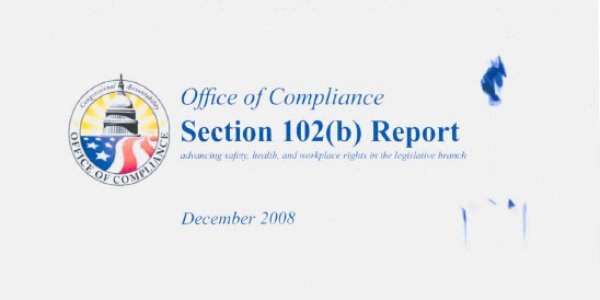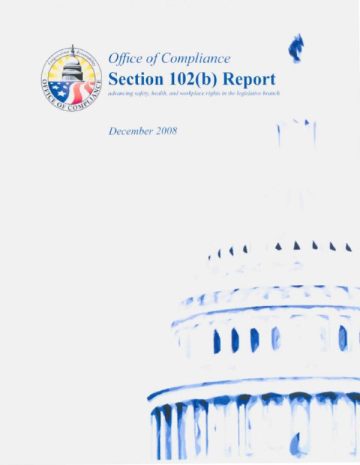Introduction
The first law passed by the 104th Congress, the Congressional Accountability Act of 1995 (C’AA) brings the legislative branch under the ambit of twelve workplace rights, occupational safety and health and fair labor standards statutes. Prior to this time. Congress had exempted itself from the reach of these laws, affording employees no statutory remedy for their violation. In an effort to bring “accountability” to the Congress and its instrumentalities, the C’AA establishes a dispute resolution process and judicial remedies; mandates an education program for employing authorities and employees of the legislative branch; requires safety, health. and disability access inspections of all facilities at least once per Congress; and authorizes a 5-member Board of Directors to promulgate regulations and make recommendations to Congress regarding employment law and access to public services and accommodations.
The CAA should be dynamic. The Act intended that there be an ongoing, vigilant review of federal law to ensure that legislative branch employees – some 30,000 strong – have coverage under the labor, employment. health, and safety laws similar to federal executive branch and private sector employees.
Since 1996. the Board of Directors, consistent with its statutory charge, has duly submitted biennial Reports to Congress recommending limited amendments to the CAA. An Interim Report in 2001 made similar suggestions regarding Section 508 of the Rehabilitation Act of 1973. The Board has also, where appropriate. promulgated implementing regulations to federal law. and urged their passage through selected Section 102(b) Reports.
In its 2006 Section 102(b) Report, the Board explicitly prioritized its recommendations to the Congress, focusing primarily on the needs of veterans and on safety and health compliance authority. The Board continues that approach in 2008. with emphasis on similar themes. As in the 2006 102(b) Report, however, the Board herein includes in the appendices the important recommendations made in prior reports: amendments to the Rehabilitation Act and to Titles II and III of the Civil Rights Act; whistle blower protections; prohibitions against discrimination on the bases ofjury duty, bankruptcy, and garnishment: notice posting; and employee protection provisions of environmental statutes. The Board incorporates these by reference and continues to urge that these prior recommendations be implemented.

